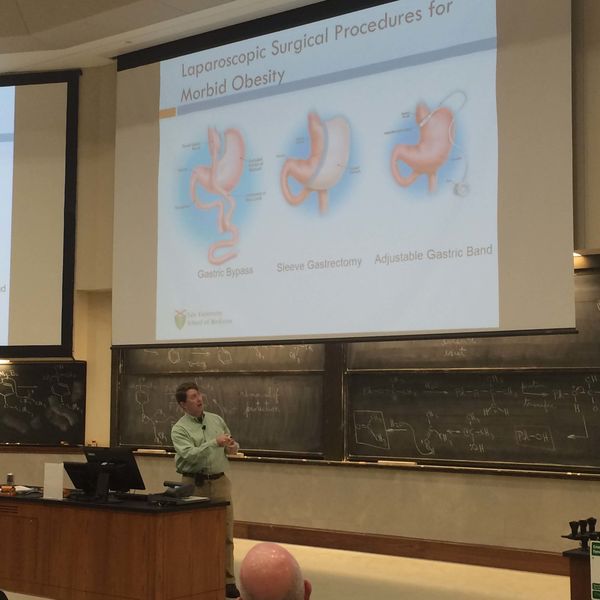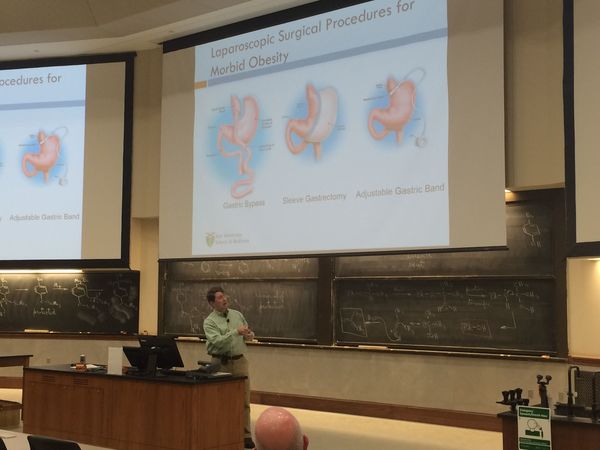
Each year Notre Dame medical alumni host game day lectures that bring together physicians, dentists, licensed medical practitioners, and other members of the Notre Dame community. This past Saturday (Oct.17), the Society welcomed Matthew Owen Hubbard, ’02, MD, ’12 MS from the Yale Bariatric Surgery Program.

Dr. Hubbard’s presentation focused on the complexities of bariatric surgery, an operation performed for the purposes of weight loss. Laparoscopic surgical procedures for morbid obesity include gastric bypass surgery, sleeve gastrectomy, and adjustable gastric band. The indications for surgery involve a person’s body mass index, or BMI. A normal BMI is usually around 18-25. An overweight classification would be anywhere from 25-30, and obesity would range anywhere from 30 to more than 60.
Co-morbidities, or the simultaneous presence of two chronic diseases or conditions in a patient, associated with obesity include: musculoskeletal, gynecologic, genitourinary, neurological, and cancer. Obesity can negatively impact a person's quality of life as well as increase the possibility of disability, higher medical costs, and higher mortality rate.
“By the year 2030, there will be there will be 6.5 million more obese adults in the U.S.,” said Hubbard.
The obesity epidemic is forecasted to produce: 7.2 million more cases of diabetes, 6.5 million more cases of heart disease and stroke, and 580,000 more cases of cancer. Treatment of these preventable diseases will cost roughly around $57 billion per year in the U.S. by 2030.
Dr. Hubbard is currently an assistant professor of gastrointestinal surgery at the Yale Bariatric Surgery Program. He earned both a Bachelor of Science in Biochemistry and Master of Science in Engineering, Science, Technology and Entrepreneurship from Notre Dame, respectively. He then went on to attend the University of Rochester School of Medicine and Dentistry in 2006 and served as a fellow at the Vanderbilt University Medical School in advanced minimally invasive and bariatric surgery.